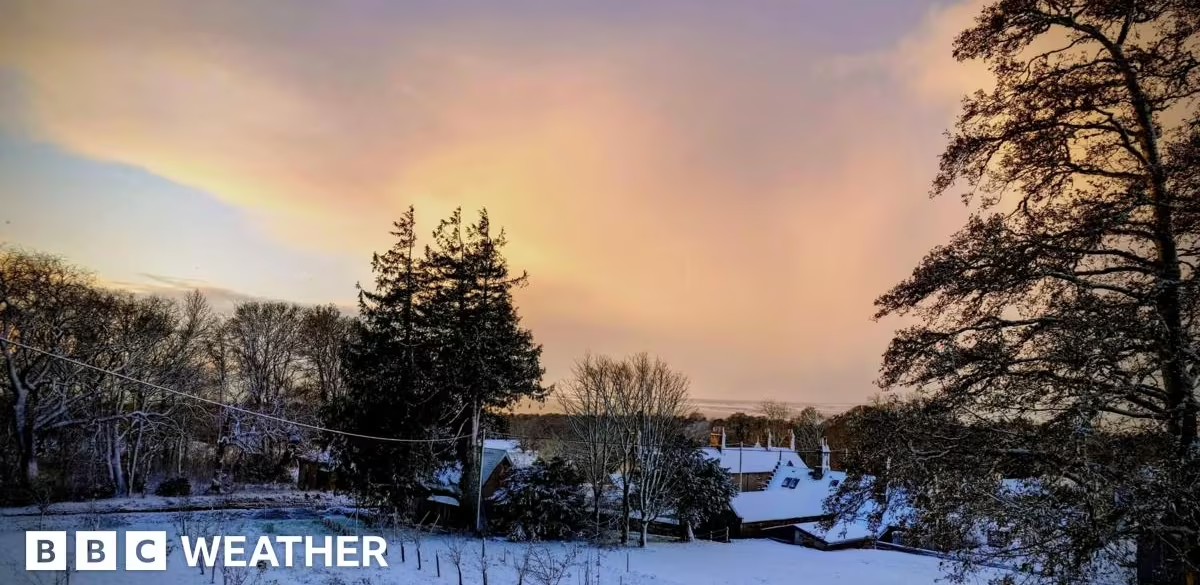When does winter begin?
BBC | 23.11.2025 17:15
Freezing temperatures? Tick. Snow? Tick. Nights drawing in? Tick.
Must be winter right? Well not so hasty.
As far as the meteorological calendar is concerned, we are still counting down the final days of autumn, notable this year for its vibrant autumn colours and changeable, whiplash-like weather patterns. We've had records for the warmest November overnight minimums to the coldest November nights for 15 years.
So, if after the Arctic blast we've just experienced this is still autumn, when will we see the official start of winter?
Defining the start of winter
There are two common ways to define the start of our seasons in the UK- meteorological and astronomical.
BBC Weather follows the meteorological calendar, where winter always begins on 1 December and ends on the last day of February.
Meteorologists use fixed three month periods for each season, which makes year-on-year comparisons between them easier.
Astronomical winter starts on the 21 December, known as the winter solstice and is the shortest day of the year. The season then runs until the vernal or spring equinox which in 2026 is Friday 20 March.
We define winter as the three coldest months - December, January and February - and when we look at a list of record low temperatures from across the UK we can see why.
The lowest temperature ever recorded in the UK is –27.2C (–17.0F), reached on three separate occasions in Scotland:
- Braemar, Aberdeenshire, on 11 February 1895 and 10 January 1982
- Altnaharra, Sutherland, on 30 December 1995
Other national record lows include:
- England: –26.1C (–15.0F) in Newport, Shropshire, on 10 January 1982
- Wales: –23.3C (–9.9F) in Rhayader, Powys, on 21 January 1940
- Northern Ireland: –18.7C (–1.7F) in Castlederg, County Tyrone, on 24 December 2010
But the UK does not often experience prolonged very cold weather, and some winters are so mild that it feels as if we skipped the season all together.
In February 2019 England and Wales saw an exceptional spell of warmth, with temperatures rising above 20C on more than one occasion.
What impact is climate change having on winter?

UK winters are becoming warmer and wetter due to human-driven climate change. Long term data shows rising average temperatures and fewer cold weather extremes.
With global temperatures continuing to rise UK winters are now about 1C warmer than a century ago. The decade 2015–2024 has been 1.24C warmer than the 1961–1990 average. Indeed, six of the ten warmest UK winters on record have occurred since 2000.
Globally 2023 was the warmest year on record where most days in December broke temperature records.
Air and ground frosts have fallen by around 25% since the 1980s, and snow days are becoming increasingly rare across the UK.
A warming world means we are more likely to see winter precipitation fall as rain rather than snow.
However, even in a warming climate the UK can still experience spells of extreme cold. In 2018 the infamous Beast from the East brought severe wintry conditions to many parts of Europe leading to significant disruption, and its impact lingered well into meteorological spring.









